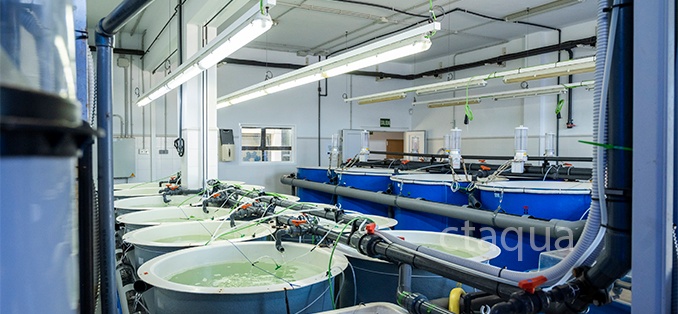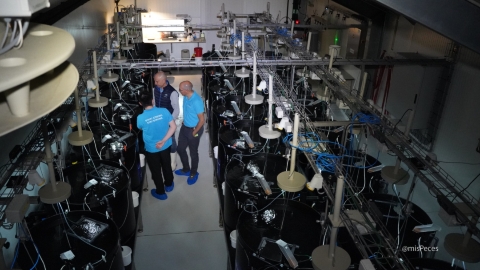
Thanks to solid-state fermentation, discarded fruits and vegetables can become a sustainable and circular source of bioactive ingredients, enhancing the immunity of aquaculture species. This innovation reduces the reliance on fishmeal and soy in commercial feeds.
While research in this area is still emerging, recent findings from the FishHealth project, funded by the 2020 Cervera Programme of Technology Centres, in Spain, confirm the potential of both the fermentation techniques and agricultural by-products in improving the immune system of European seabass (Dicentrarchus labrax).
According to a study published in the journal Biomass Conversion and Biorefinery, the results include not only a 20% reduction in mortality caused by the pathogen Tenacibaculum maritimum, but also an enrichment of the feed with proteins, essential fatty acids, and phenolic compounds.
Another noteworthy development from the study is the valorization of the fungus Rhizopus sp. to transform agricultural waste through solid-state fermentation into functional ingredients.
Analysis showed that biomass fermented with these compounds has a direct impact on the growth and health of fish, even when used in small amounts (5%) within the diet.
One study’s most groundbreaking aspect is the ability of the resulting extracts to inhibit the growth of pathogenic bacteria such as Aeromonas hydrophila, demonstrating antimicrobial properties. This breakthrough supports the reduction of antibiotic in aquaculture, a critical goal for sustainability and biosecurity.
Additionally, the team assessed the antioxidant activity of the fermented extracts, which protect fish cells from oxidative stress, enhancing physiological performance and reducing the risk of diseases associated with intensive farming conditions.
Environmental and Economic Impact, and Relevance to the Aquaculture Industry
This approach offers a dual benefit: it not only repurposes agricultural waste that would otherwise be discarded, but also decreases dependence on critical inputs such as fishmeal and soy, whose production has a high environmental footprint. By integrating this technology, feeding costs-which account for 50% to 70% of operational expenses in aquaculture-could be significantly reduced.
At the World Aqua 2024 Conference, held in Copenhaguen last August, Iria Folgueira, Head of the Animal Health Department at Andalusian Aquaculture Centre (CTAQUA), highlighted that this technology not only enhances the productivity and health of aquaculture species but also addresses the growing market demand for more sustainable and ethical products.
The project aligns closely with the United Nations of Sustainable Development Goals (SDGs) by promoting efficient resource management and reducing food waste.
The research team plans to expand experimental trials to other commercially significant aquaculture species and optimise the solid fermentation process to maximise the production of bioactive compounds.
With these advances, aquaculture takes a crucial step forward towards a more resilient, sustainable, and economically viable model, establishing itself as a key solution to global food security challenges.


